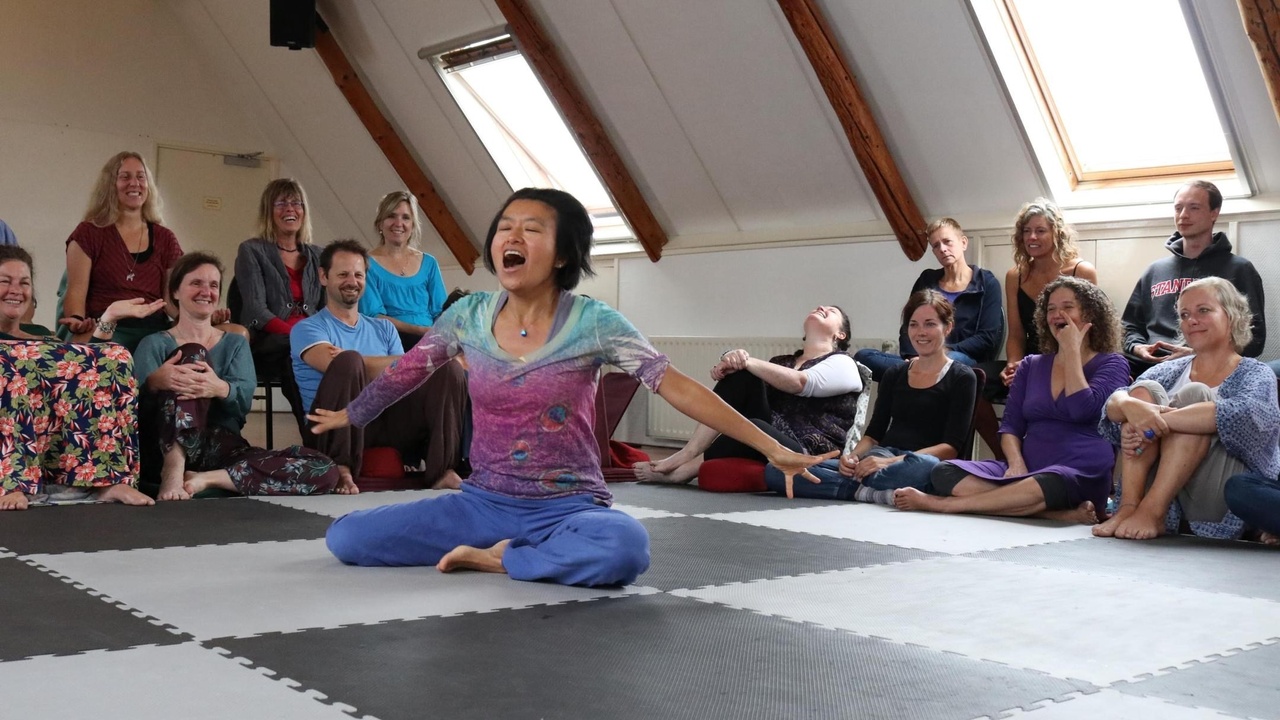Trigger Tracking - Release Yourself From Past Patterns
Over the past few weeks we’ve explored the art and foundational practice of Tracking. Tracking allows us to shine the light of awareness on our body’s somatic experiences, present moment reality, our relationship to that reality, and what comes alive in us, as we explore in an amplified field.
Now we take our tracking to a whole other level - enter Trigger Tracking!
Trigger Tracking is simple in theory and not always easy in practice. However, when done well and with curiosity, it's like mining for gold. Our triggers are rich with information that can help us unpack and understand parts of our inner world that often go ignored, overlooked or simply misunderstood.
A trigger is an emotional reaction or response to an external experience or circumstance. A trigger is most often associated with feelings & emotions that we normally wish to avoid, such as resentment, anger, frustration, disappointment, fear, sadness, grief, etc.
However, when we dare to track our triggers we give ourselves the opportunity to unpack and unwind the deeper realities of our life experiences. How do we show up in relationships, how do we self-sabotage opportunities to learn, connect and heal, how do we block and resist love and understanding?
Watch the video on Trigger Tracking to learn more and experience it Through the Eyes of a Student below.
Through the Eyes of a Student
By Shalini Tewari
‘It really annoys me when I’m talking to someone and they check their phone or look away as I speak.
I can feel an energy rising in my chest as they appear to be distracted, and I want to stop talking until I know I have their full attention.
I remember a bubbling sensation that feels like it will boil over and I want to shake the person and scream, WHY AREN’T YOU LISTENING TO ME??’
I take a deep breath and notice that I don’t want to look directly at my screen in fear of the trigger coming alive if there is someone looking away. The thought feels somewhat humorous and makes me relax. Within this relaxed state, I begin to notice that this trigger feels very young. I share this with the circle and mention how the sense of feeling exposed is coming up in my chest area.
Someone asks me a question:
‘What impact does not being heard have on you?’
I take another deep breath and listen in.
‘The impact this has on me is that a part of me feels like what I’m saying must not be that important and that I’m taking up valuable time. I sometimes feel like I need to rush and get to the point. I notice another part that wants to ramble on in order to make my point heard.’
As we have learned over the last 4 weeks, tracking is the primary foundation of the Heart iQ language. We now know how to track the body’s somatic movements, notice what is true and the relationship to that truth in the present moment, become aware of what is alive in the field as these truths are unpacked, and how to unwind contractions built up over the years. The next part of the journey is called trigger tracking.
Triggers are external events or circumstances that may cause uncomfortable emotional symptoms. They often get set off in connection with those whom we are closest.
Our task is to choose a trigger that is not ‘alive’ in this moment – meaning it is not with anyone with whom I am sharing and therefore I am in capacity to explore it versus go into my pain body and react.
As we identify core triggers in connection with another, we can learn how to ‘unpack the zip file’ as it’s described in Heart iQ language. These ‘compressed files’ begin to decompress when we explore our triggers, and what seemed like minor disturbances become part of deeper stories from our pasts.
‘As I track this trigger, thoughts of my brother are coming up. I sometimes feel like my world is irrelevant to him and when I begin to share my life in his physical presence, he seems too busy and distracted to listen. I have stopped sharing intimate details of my life when I see him.
This also reminds me of how I’ve stopped sharing my travel experiences with friends as I’ve learned that when I used to do this, their eyes would glaze over. I learned to say less and hold back in sharing my experiences for fear of appearing boastful.’
These seemingly unrelated memories start popping up as I explore the initial trigger.
Space holders can ask follow up questions out of curiousity to deepen the exploration. If they feel like the space taker is going into a story, they can also make requests to help them feel the space taker more.
‘How did it feel to have to hold back these parts of your life?’
‘Initially, it felt bad. I was excited to share my stories. But inevitably, I remember feeling like it was selfish of me to share them or that they weren’t that important.
I’m also aware of the part that feels hurt because I feel like I give all of my attention to others when they speak and expect the same in return.
As the youngest in my family, it seemed my opinions did not really matter. This brings up a memory from when I was a teenager and my mom used to answer for me when her friends would ask what I was up to. The impact this had on me was the sense that my answer was not good enough, needed embellishment or didn’t need to be heard.’
In unpacking this trigger, I was starting to gain clarity on why I react so strongly when it appears as though I’m not being heard. Instead of overreacting either by acting immaturely or allowing a fiery fury to build inside of me, I can create some space and hold that younger version of myself who might start feeling unsafe.
‘By becoming aware of that part of me who needs to feel heard, recognised and valued, I can shift control to filling those needs from within instead of throwing others into the pressure cooker of my past.’
The circle members let out a sigh of relief and a chuckle. The power of circling allows everyone to feel the imprint of an exploration and take what medicine they need to apply to their own version of similar triggers.

Why Choose Us
Integer nisl odio, scelerisque
fermentum rutrum leo. Praesent sit amet sem aliquet, dapibus metus et, tempor sapien. Cras varius metus metus, ac tempor ex malesuada lacinia. Nulla facilisi. Integer ultrices, risus sed euismod rhoncus
orem leo egestas velit, id volutpat ex nibh a neque. Quisque orci metus
iaculis libero. Nam porttitor nisi sed elit dictum, sed rhoncus
ipsum luctus. Pellentesque viverra, diam ac euismod pharetra














